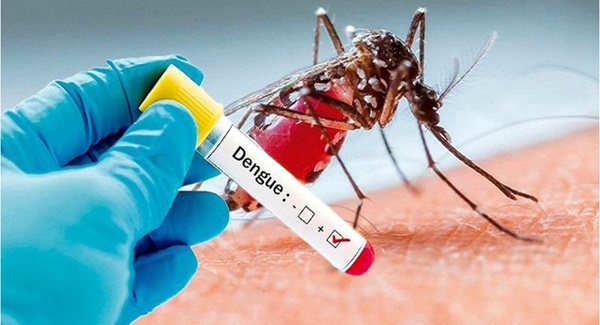
The Nigeria Centre for Disease Control and Prevention (NCDC) has confirmed 13 cases of Dengue fever in Sokoto State and called for increased awareness across the nation, as Nigeria continues to grapple with a surge in Dengue fever cases.
The recent outbreak has triggered concerns about the awareness among Nigerians regarding this mosquito-borne illness, emphasising the urgent need for enhanced public education and preventive measures.
The NCDC, through its official website, revealed that Sokoto State recorded 71 suspected cases across three local government areas – Sokoto South (60 cases), Wamako (three cases) and Dange Shuni (one case). These alarming statistics underscore the necessity for immediate action to curb the spread of the disease.
Dengue virus (DENV) is a prominent mosquito-borne virus of global concern, with DENV serotypes 1 and 2 first reported in Africa in 1964 in Ibadan, Nigeria. Originating in monkeys, Dengue fever transitioned to humans nearly 800 years ago. Initially limited to Africa and Southeast Asia, the virus has since spread to tropical regions globally, facilitated by maritime shipments.
Nigeria, as the most populous country in Africa, is particularly vulnerable due to the prevalence of the Aedes aegypti mosquito, a known vector for dengue, Zika, chikungunya (CHIKV) and the West Nile viruses. The Nigerian Public Health Institute detected the outbreak in November 2023, reporting no fatalities but revealing that most suspected cases fall within the 21-40 age range.
Dengue fever, caused by the dengue virus and transmitted through mosquito bites, is a viral infection prevalent in tropical and sub-tropical climates, primarily in urban areas worldwide. The symptoms, including high fever, severe headache, pain behind the eyes, joint and muscle pains, nausea, vomiting, swollen glands and rash, typically manifest four to 10 days after infection and last for two to seven days. Individuals infected for the second time face a higher risk of severe dengue.
The NCDC-led National Emerging Viral Haemorrhagic Diseases Technical Working Group (NEVHD TWG) has conducted a rapid risk assessment in collaboration with partners and stakeholders to guide preparedness activities. Despite the moderate current risk level, the NCDC asserts the adequacy of in-country capacity, including technical, health workforce and diagnostic resources, to respond effectively to a large-scale outbreak.
Having successfully tackled previous viral haemorrhagic fever epidemics, such as the Ebola outbreak in 2014 and subsequent Lassa fever cases, Nigeria is equipped with a response system. The NCDC National Reference Laboratory in Abuja and the Usman Dan Fodio University Sokoto Teaching Hospital Laboratory Centre for Human and Zoonotic Virology provide diagnostics capacity for the dengue virus. The NCDC aims to optimise existing Lassa fever testing laboratories within its national network for DENV diagnosis to enhance preparedness.
A public health expert, Dr. Gabriel Adakole emphasised the crucial role of prevention in reducing Dengue fever risks. Nigerians can protect themselves by using mosquito repellent, wearing long clothing, avoiding peak mosquito times, eliminating breeding sites, using mosquito nets, and staying informed through local health advisories. Recognising symptoms such as high fever, severe headaches, pain behind the eyes, joint and muscle pain, rash and mild bleeding is vital. Seeking prompt medical attention and avoiding self-medication are essential and staying informed about local outbreaks while adhering to health guidelines can contribute to effective prevention and control. As the nation grapples with the rising cases, a collective effort is needed to combat Dengue fever and protect public health.

